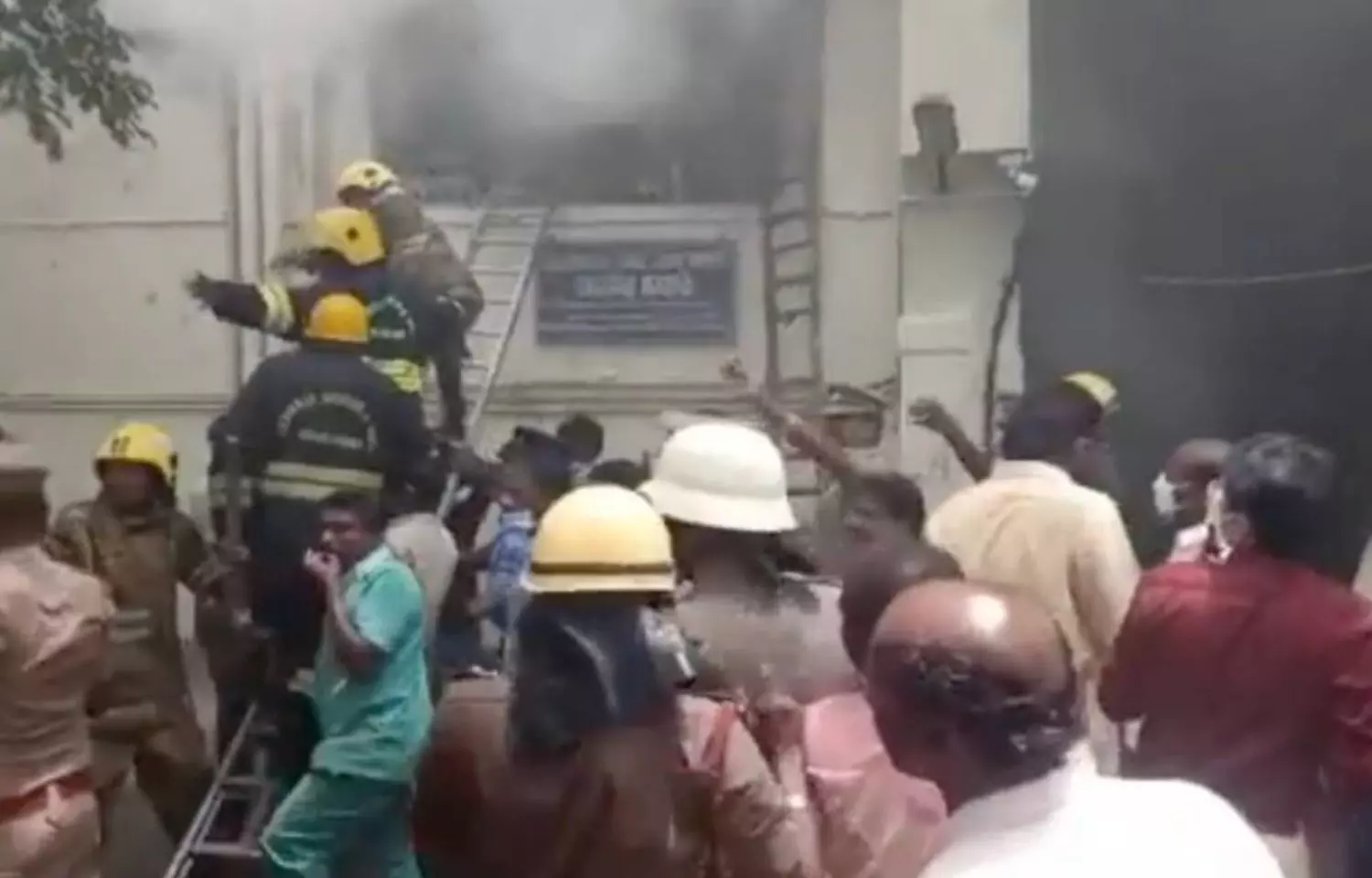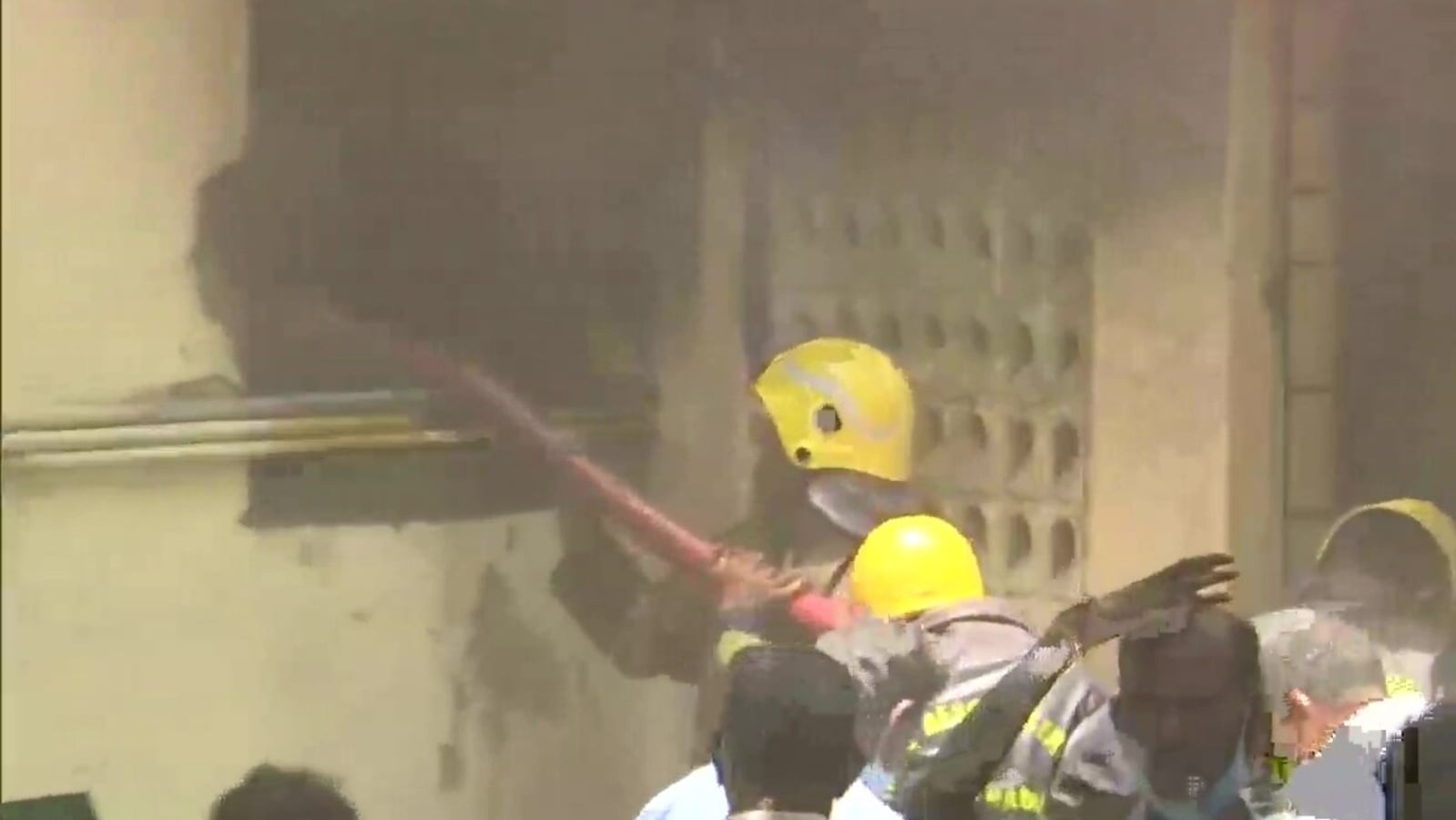Tragedy In Chennai 6 Dead After Hospital Fire
Tragic Chennai Hospital Blaze Sparks Urgent Call for Fire Safety Reforms

In a very tragic incident, six people, including a child, lost their lives due to a fire at the City Hospital on Trichy Road in Chennai, Tamil Nadu. The tragic event occurred late on December 12, 2024, raising serious questions regarding safety measures in private healthcare facilities. According to the initial reports, suffocation due to dense smoke was the primary cause of the deaths. After the tragic incident, grief has overflowed, and there have been pleas for more substantial safety procedures in hospitals across the nation.
The Incident and Rescue Operations
The fire erupted in the late hours of Thursday night at City Hospital, a healthcare establishment in Chennai. Eyewitness accounts and preliminary reports indicate that smoke engulfed the hospital floors rapidly, leaving many people unable to escape.
Tamil Nadu Fire and Rescue Service personnel arrived after the emergency services were notified. Over 30 patients were evacuated from the hospital premises and admitted to nearby facilities, including the district’s Government Hospital. Six others were trapped inside the elevator, and when rescued, they were found unconscious. They were taken to a local hospital and pronounced dead.

Probable Cause of the Fire
Authorities have confirmed it as an electrical failure, and a detailed investigation is in motion. This fits well with most cases in India, mainly due to electrical faults that caused fires in residential and commercial buildings. In this case, dense wiring and lack of proper maintenance in the older hospitals could have contributed to creating such a disaster.
Some pictures of the site report thick smoke going out of the hospital with firemen and other emergency teams battling the flame to contain it.
Impact on Public Safety and Hospital Accountability
Ideally, safety and standards in government & private hospitals need improvement urgently. While they represent institutions essential to public welfare, many health care facilities fail to observe proper fire safety.
Key Questions Raised:
- Are Fire Safety Norms Being Followed? Hospitals should adhere to the National Building Code, which requires fire alarms, sprinklers, and quarterly safety review many incidents hint at a failing in the execution of the norm.
- Emergency Preparedness: Were the hospital staff well-equipped to handle such a crisis? The delay in evacuation further indicates that there were gaps in preparedness.
- Periodic Inspections: Are local authorities conducting regular fire safety drills and inspections?

Recurring Pattern: Lessons from Previous Incidents
India has seen multiple hospital infernos that indicate that the issue is systemic.
November 2024: Jhansi NICU Fire
In one of the most harrowing incidents, 11 newborns perished in a fire at Maharani Laxmi Bai Medical College in Jhansi, Uttar Pradesh. Investigations revealed that the tragedy could have been averted if the hospital had acted on recommendations from a safety audit conducted just five months earlier. Exposed wiring and open junction boxes were flagged but left unaddressed.
This incident of Jhansi fire brings the lesson that institutional negligence can cause avoidable loss of life. The Tamil Nadu incident now adds to this growing list of tragedy. Therefore, there is an immediate need for action.
Expert Insights: How Fires in Hospitals Can Be Prevented
Experts suggest that hospitals must work on safety as much as they have worked on patients’ care. Some significant recommendations are:
- Regular Maintenance of Electrical Systems: Wiring, switches, and equipment are used to determine potential hazards so that they might be addressed.
- Installation of Fire Safety Mechanisms: A sprinkler system, smoke detector, and fire extinguisher must be installed in each hospital.
- Emergency Training for Staff: Medical and non-medical staff should be trained to ensure an effective response in case of emergency, thus swift evacuation.
- Adherence to Safety Audits: Hospitals should comply with audit recommendations, treating them as mandatory rather than optional.
Public Response and Government Accountability
While the public reacted in horror to this tragedy and demanded that medical facilities seriously upgrade their fire safety standards, the chief minister of Tamil Nadu promised to investigate the incident in-depth and condoled the deaths.
The state authority promised to carry out a statewide review of hospital safety measures. But major changes are yet to be seen in the public domain after the above discussion.
Moving Forward: A Wake-Up Call for India’s Healthcare System
This incident reminds starkly of the vulnerabilities of the healthcare infrastructure in India. Hospitals, which must otherwise be havens for people, become sites for tragedy without proper safeguards.

What Needs to Be Done?
- Policy Reforms: The law must be stringent so that all healthcare institutions abide by fire safety policies.
- Regular Inspections: The government must conduct regular inspections to ensure preparedness on safety standards.
- Public Awareness: The public awareness of hospital safety standards should be increased so that the patients and their families demand accountability from them.
Conclusion
The fire in the City Hospital in Chennai has once again brought the grim reality of India’s safety standards in healthcare into sharp focus. However, the reason for this unfortunate fire is not yet confirmed, but it still killed six innocent people; thus, it has become strong enough to demand reform forthwith.
Hospitals must concern themselves with eradicating illnesses and everyone’s safety and security inside their institution. This is an opportunity for policymakers, hospital officials, and people to wake up. Collectively, one would hope to see that the reoccurrence of such cases might be prevented in the future.




